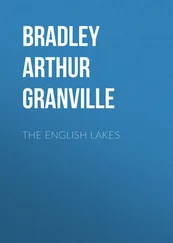White John White - Lays and Legends of the English Lake Country
Здесь есть возможность читать онлайн «White John White - Lays and Legends of the English Lake Country» — ознакомительный отрывок электронной книги совершенно бесплатно, а после прочтения отрывка купить полную версию. В некоторых случаях можно слушать аудио, скачать через торрент в формате fb2 и присутствует краткое содержание. Жанр: foreign_poetry, Поэзия, foreign_antique, foreign_prose, на английском языке. Описание произведения, (предисловие) а так же отзывы посетителей доступны на портале библиотеки ЛибКат.
- Название:Lays and Legends of the English Lake Country
- Автор:
- Жанр:
- Год:неизвестен
- ISBN:нет данных
- Рейтинг книги:4 / 5. Голосов: 1
-
Избранное:Добавить в избранное
- Отзывы:
-
Ваша оценка:
- 80
- 1
- 2
- 3
- 4
- 5
Lays and Legends of the English Lake Country: краткое содержание, описание и аннотация
Предлагаем к чтению аннотацию, описание, краткое содержание или предисловие (зависит от того, что написал сам автор книги «Lays and Legends of the English Lake Country»). Если вы не нашли необходимую информацию о книге — напишите в комментариях, мы постараемся отыскать её.
Lays and Legends of the English Lake Country — читать онлайн ознакомительный отрывок
Ниже представлен текст книги, разбитый по страницам. Система сохранения места последней прочитанной страницы, позволяет с удобством читать онлайн бесплатно книгу «Lays and Legends of the English Lake Country», без необходимости каждый раз заново искать на чём Вы остановились. Поставьте закладку, и сможете в любой момент перейти на страницу, на которой закончили чтение.
Интервал:
Закладка:
Storm-like through his dislorded halls
And farmsteads lone, the rumour breaks;
And far by Witherslack's grey walls,
And hamlet cots, despair awakes.
And all old things meet shock and change,
Since Broughton, down-borne in his pride
On that red field, no more shall range
By Duddon's rocks, or Winster's side.
And while the hills around rejoiced,
And in the triumph of their King
Old strains of peace sang trumpet-voiced,
And bade the landscapes smile and sing;
Far stretching o'er the land, his sign
The King from Broughton's charters tore;
And the old honours of his line
In his old tower were known no more.
His halls, his manors, his fair lands,
Pass'd from his name; round all he'd loved,
And all that loved him, power's dread hands
In shadow through the noontide moved:
E'en to those cottage homes apart,
His poor men's huts by lonely ways—
To crush from out the humblest heart
Each pulse that dared to throb his praise!
But when old feuds had all been healed,
And England's long lost smiling years
Returned, and tales of Stoke's red field
Fair eyes had ceased to flood with tears;
'Twas whispered 'mid the fields and farms,
That once were Broughton's free domain,—
His banner , saved from strife of arms,
Was somewhere 'mid those homes again.
That o'er the hills afar, where lies
Lone Witherslack by moorland roads,
His own old liegemen true the prize
Held fast within their safe abodes.
Thrice honour'd in that matchless zeal
To brave proscription, death and shame;
Thus rescued by their hearths to feel
The symbol of his ancient fame!
So for old faithfulness renowned,
The tenants of that knightly race
Their age-long acts of service crowned
With that last deed of loyal grace.
Last? Nay! for on one Sabbath morn,
An old man, blanch'd by years and cares,
Gave up his spirit, tired and worn,
Amidst those humble liegemen's prayers.
Gave up a long secreted life
'Mid hinds and herds, by peasant maids
Nurtured and soothed, while shadows rife
With death's stern edicts, stalked the glades.
He pass'd while Cartmel's monks sang dole,
As for a brave man gone to rest;
And men sighed, "Glory to his soul!"
And wrapt the banner round his breast:
And placed the tassell'd bridle reins
And spurs that, by his lattice, led
His thoughts so oft to far off plains,
Beside him in his narrow bed:
And borne on high their arms above,
As hinds are borne to churchyard cells,
With kindly speech of truth and love,
Mix'd with the sound of mournful bells,
They laid him in a tomb, engraved
With no memorial, date, or name;
But one dear relic round him, saved
To whisper in the earth his fame.
And when that age had all gone down
To mingle with its native dust,
And time his deeds had overgrown,
His banner yielded up its trust;
And told from one low chancel's shade
Where good men sang on holy days—
"Here Broughton's Knight in earth was laid.
Peace! To his tenants, endless praise!"
NOTES TO "THE BANNER OF BROUGHTON TOWER."
Broughton Tower, the ancient part of which is all that remains of the residence of the unfortunate Sir Thomas Broughton, stands a little to the eastward of the town of that name, upon the neck of a wooded spur of land, which projects from the high ground above the houses towards the river Duddon, about a mile distant. The towered portion, as it rises from the wood, has much of the appearance of a church; but is in reality part of the ancient building, now connected with a modern mansion. It has a southern aspect, with a slope down to the river, being well sheltered in the opposite direction. "It commands an extensive view, comprising in a wonderful variety hill and dale, water, wooded grounds, and buildings; whilst fertility around is gradually diminished, being lost in the superior heights of Black Comb, in Cumberland, the high lands between Kirkby and Ulverston, and the estuary of the Duddon expanding into the sands and waters of the Irish sea."
The Broughtons were an Anglo-Saxon family of high antiquity, in whose possession the manor of Broughton had remained from time immemorial, and whose chief seat was at Broughton, until the second year of the reign of Henry the Seventh. At this period the power and interest of Sir Thomas Broughton were so considerable, that the Duchess of Burgundy, sister to the late King and the Duke of Clarence, relied on him as one of the principal confederates in the attempt to subvert the government of Henry by the pretensions of Lambert Simnel.
Ireland was zealously attached to the house of York, and held in affectionate regard the memory of the Duke of Clarence, the Earl of Warwick's father, who had been its lieutenant. No sooner, therefore, did the impostor Simnel present himself to Thomas Fitz-Gerald, Earl of Kildare, and claim his protection as the unfortunate Warwick, than that credulous nobleman paved the way for his reception, and furthered his design upon the throne, till the people in Dublin with one consent tendered their allegiance to him as the true Plantagenet. They paid the pretended Prince attendance as their sovereign, lodged him in the Castle of Dublin, crowned him with a diadem taken from a statue of the Virgin, and publicly proclaimed him King, by the appellation of Edward the Sixth.
In the year 1487 Lambert, with about two thousand Flemish troops under the command of Colonel Martin Swart, a man of noble family in Germany, an experienced and valiant soldier, whom the Duchess of Burgundy had chosen to support the pretended title of Simnel to the crown of England, and a number of Irish, conducted by Thomas Gerardine their captain from Ireland, landed in Furness at the Pile of Fouldrey. The army encamped in the neighbourhood of Ulverston, at a place now known by the name of Swart-Moor. Sir Thomas Broughton joined the rebels with a small body of English. The army, at this time about eight thousand strong, proceeded to join the Earl of Lincoln, Lord Lovel, and the rest of the confederates, passing on through Cartmel to Stoke field, near Newark-upon-Trent, where they met and encountered the King's forces on the 5th of June, 1487.
The day being far advanced before the King arrived at Stoke, he pitched his camp and deferred the battle till the day following. The forces of the Earl of Lincoln also encamped at a little distance from those of the King, and undismayed by the superior numbers they had to encounter, bravely entered the field the next day, and arranged themselves for battle, according to the directions of Colonel Swart and other superior officers. The charge being sounded, a desperate conflict was maintained with equal valour on both sides for three hours. The Germans were in every respect equal to the English, and none surpassed the bravery of Swart their commander. For three hours each side contended for victory, and the fate of the battle remained doubtful. The Irish soldiers, however, being badly armed, and the Germans being overpowered by numbers, the Lambertines were at length defeated, but not before their principal officers, the Earl of Lincoln, Lord Lovel, Sir Thomas Broughton , Colonel Swart, and Sir Thomas Gerardine captain of the Irish, and upwards of four thousand of their soldiers were slain.
Читать дальшеИнтервал:
Закладка:
Похожие книги на «Lays and Legends of the English Lake Country»
Представляем Вашему вниманию похожие книги на «Lays and Legends of the English Lake Country» списком для выбора. Мы отобрали схожую по названию и смыслу литературу в надежде предоставить читателям больше вариантов отыскать новые, интересные, ещё непрочитанные произведения.
Обсуждение, отзывы о книге «Lays and Legends of the English Lake Country» и просто собственные мнения читателей. Оставьте ваши комментарии, напишите, что Вы думаете о произведении, его смысле или главных героях. Укажите что конкретно понравилось, а что нет, и почему Вы так считаете.












